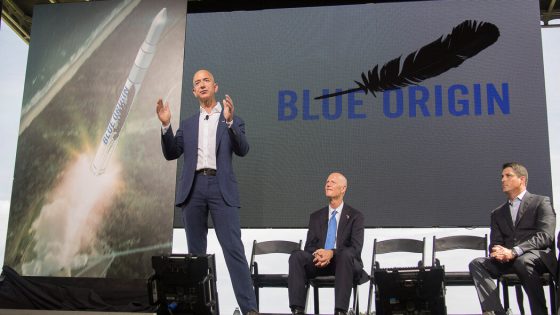Which billionaire space company will get to the moon first: Elon Musk’s SpaceX or Jeff Bezos’ Blue Origin?
At first glance, SpaceX seems to have a huge head start. It is about to launch the third test flight of Starship. A variation of Starship is scheduled to take NASA astronauts to the surface of the moon as soon as September 2026.
By contrast, Blue Origin has yet to launch anything into orbit, and its contract with NASA for a lunar lander for astronauts is for a mission that is launching in 2030.
But Blue Origin might still get there first. SpaceX faces major challenges with Starship, which is as tall as 16-story building, while Blue Origin plans to send a smaller cargo lander to the moon by the end of next year.
“This lander, we’re expecting to land on the moon between 12 and 16 months from today,” John Couluris, senior vice president of lunar permanence at Blue Origin, said during an interview on the CBS News program “60 Minutes” this month.
The first launch of the Mark 1 version of the Blue Moon lander is what Blue Origin calls a “pathfinder” to test technologies like the BE-7 engine, the flight computers, avionics and power systems — the same systems that will be used in the much larger Mark 2 lander that will take astronauts to the moon’s surface.
The Mark 1 lander can carry up to three tons of cargo to the lunar surface, but will be small enough to fit inside one of Blue Origin’s New Glenn rockets. New Glenn has yet to fly, but the company says its debut journey will occur later this year.
After Blue Moon Mark 1 is launched into an orbit about 125 miles above Earth’s surface, the lander’s BE-7 engine will propel it toward the moon, slowing it down to enter orbit around the moon and then guiding it to the landing on the surface.
The smaller size means that the Mark 1 lander, unlike Starship, will not need to be refueled before leaving Earth orbit. Demonstrating that refueling technology in orbit will be a key test to validate Starship’s design. Refueling will also be needed for the Blue Moon Mark 2 lander.
Source Agencies

